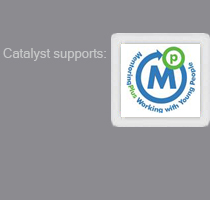 As business enterprises have grown in size and complexity, it is not uncommon to find them owning and/or controlling one or more subsidiary corporations. These subsidiary corporations may be for-profit subsidiaries, or in some cases even nonprofit subsidiaries. In either case, the relationship between a parent company and a subsidiary may create some unique problems for the parent company.
As business enterprises have grown in size and complexity, it is not uncommon to find them owning and/or controlling one or more subsidiary corporations. These subsidiary corporations may be for-profit subsidiaries, or in some cases even nonprofit subsidiaries. In either case, the relationship between a parent company and a subsidiary may create some unique problems for the parent company.
Why A Subsidiary?
There are many reasons why a business enterprise may establish a subsidiary corporation. These reasons often include, for example:
(1) the parent company desires to engage in a new line of business activity unrelated to its current business;
(2) the existing or projected revenues from the new line of business activity are substantial;
(3) the business enterprise prefers not to expose its assets to the liabilities associated with the new business line; or
(4) the new business activities may carry risks of liability unacceptable to the parent;
(5) the parent is a public corporation and it desires to keep the subsidiary privately held;
(6) the parent wants to posture the subsidiary for going public without affecting the parent’s shareholders; or
(7) that the organization desires to reward certain employees with increasing compensation, etc.
The Parent/Subsidiary Relationship
It is common to use the term “parent/subsidiary” when describing the relationship between a business enterprise and its subsidiary. But, a caveat is in order here. The term “parent/subsidiary” is not equivalent to the term “parent/child”. This is an important point.
While the parent business enterprise may incorporate its subsidiary corporation, name its board of directors and officers, enunciate the subsidiary’s business purpose, adopt bylaw provisions preserving the parent’s control of its subsidiary, etc., it is important that the subsidiary be established and recognized by the parent, as well as third parties, as an independent corporation managed by a board of directors.
Subsidiary Independence: A Stumbling Block?
The matter of subsidiary independence is oftentimes a stumbling block to the parent business enterprise which may view an independent subsidiary as an uncontrolled subsidiary. But recognizing a subsidiary as an “independent” corporation is not the equivalent of regarding the subsidiary as “uncontrolled.” At all times, provided that appropriate bylaw provisions are adopted and maintained, the parent has the legal authority to hold the subsidiary accountable to meet “bottom line” financial objectives, to pursue acceptable policy mandates, to fulfill its goals and to otherwise conduct its affairs in a manner pleasing to the parent.
How Does The Parent Control An Independent Subsidiary?
Upon reaching a decision to organize or acquire a subsidiary corporation, the business enterprise parent controls its subsidiary by being its sole stockholder. By holding, i.e., owning all of the subsidiary’s voting stock, the parent has the power to elect and remove the entire board of directors.
To maintain control of a subsidiary and at the same time allow the subsidiary to operate as an independent entity under the direction of its board of directors, a parent business enterprise should:
(1) be the sole shareholder;
(2) include voting control provisions in the subsidiary’s articles of incorporation along with provisions that prohibit amendment of the articles without the approval of the sole shareholder;
(3) prepare comprehensive bylaws defining the designation and authority of officers, their term of office, their removal (for cause, or for any or no reason);
(4) include in the bylaws the procedure whereby the parent elects and removes directors; and
(5) prohibit bylaw amendments without the sole shareholder’s approval, etc.
The board of directors of the subsidiary are responsible to manage the business and affairs of the subsidiary. The board selects officers and the officers are responsible to execute the policies of the board. The officers of the subsidiary do not “report” to the officers or board of the parent nor are they responsible to the officers or board of the parent corporation. This does not mean, however, that there is no communication between the subsidiary’s CEO and the parent. After all, the parent owns the subsidiary and by virtue of its ownership or control is entitled to examine the subsidiary’s financial reports and business plan, and to otherwise hold the subsidiary and its management accountable for the performance expectations of the parent.
What Legal Risks Are Likely In The Parent/Subsidiary Relationship?
A parent corporation may hold its subsidiary accountable for the expectations of its board of directors. And, this is the purpose of the parent’s control of its subsidiary: to hold it accountable for performance. As long as the parent permits the subsidiary to act independently under the direction of its board, there is little risk to the parent of being found liable for the negligence or wrong-doing of the subsidiary. After all, the parent in a parent/subsidiary relationship is merely a stockholder, and the law is clear that a stockholder is not liable for the actions, debts, or obligations of the corporation.However, if the parent exercises excessive control over the subsidiary by, e.g., commingling funds, interchanging employees, having its board serve as the board of the subsidiary, sharing office facilities, using a common letterhead, and otherwise blurring the distinctions between the parent and the subsidiary as separate independent corporations, then each corporation is at risk for the unfunded liabilities of the other under the legal doctrine of “alter ego.”
Under this doctrine, a litigant may “pierce the corporate veil” of the subsidiary corporation and reach the assets of the parent corporation under the theory that the two corporations, for legal liability purposes, are not two independent corporations, but are but one corporation in fact. In this way, the litigant may seek payment of an unfunded liability of one corporation from another corporation. It must be noted, however, that a litigant pursuing an alter ego theory of liability has an uphill fight. Courts are not likely to permit a litigant to “pierce the corporate veil” of a corporation and reach the assets of its parent shareholder, unless it is abundantly clear that the two corporations were indistinguishable as separate corporate entities and are operating as one corporation.
How Should The Parent/Subsidiary Relationship Be Managed?
The parent corporation, by virtue of its voting control of the subsidiary, has the power to hold the subsidiary accountable for its performance. Since the parent retains voting control, it has the authority to select the subsidiary’s directors. This is a most important aspect of the parent’s control of its subsidiary. By selecting qualified, and to some extent indoctrinated, directors, the parent puts into place the subsidiary’s board of directors. This board manages the business and affairs of the subsidiary, makes policy, selects its officers, provides oversight of the subsidiary’s activities, and functions as the subsidiary’s governing body.
The parent’s selection of the subsidiary’s directors is a critical exercise of authority. A wrong-headed decision here risks mismanagement of the subsidiary.
Thus, not only should the subsidiary’s directors be selected with care, they should be “schooled” in a formal board training program which teaches individuals what they should know about being a director of a corporation. Not everyone is suited for being a director of a corporation. Today, a business corporation can often present challenges which tax the ability of the most gifted board members. While it would be a stretch to impute liability to a parent corporation for its “negligent” selection of subsidiary directors, nevertheless prudent selections should be made, and individuals selected as directors should undertake a board training experience to prepare them to meet the challenges of the corporation they serve. A procedure for schooling directors is a matter best defined by appropriate provisions in the subsidiary’s bylaws.







